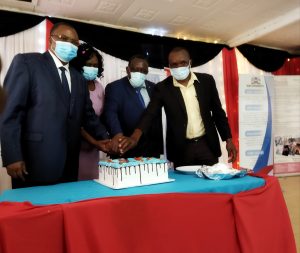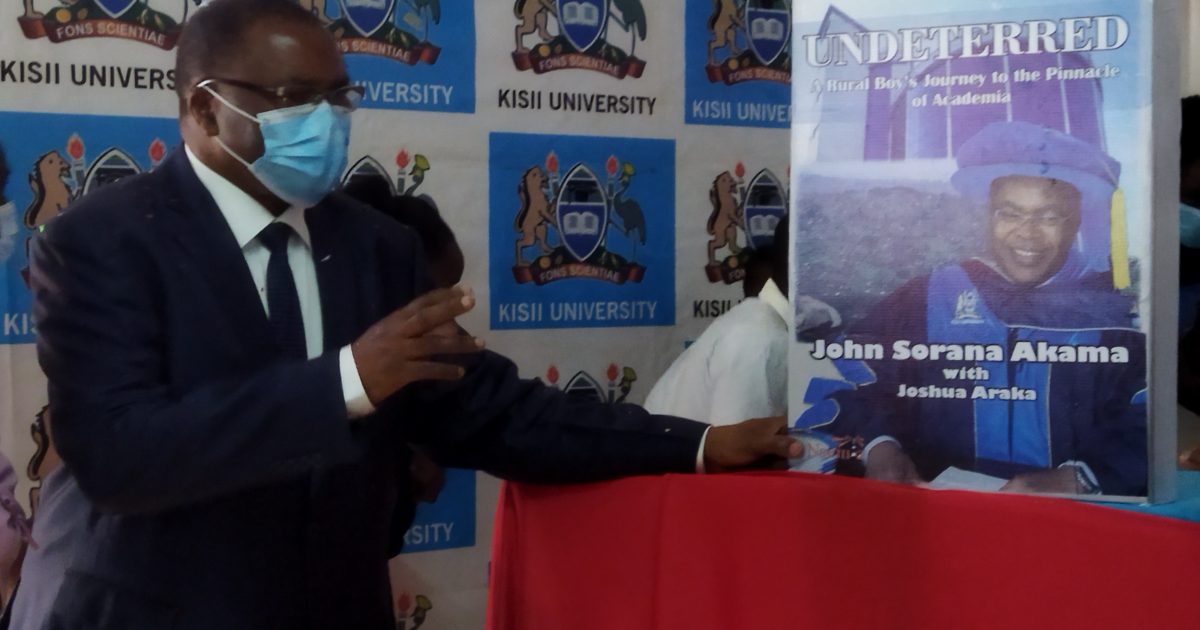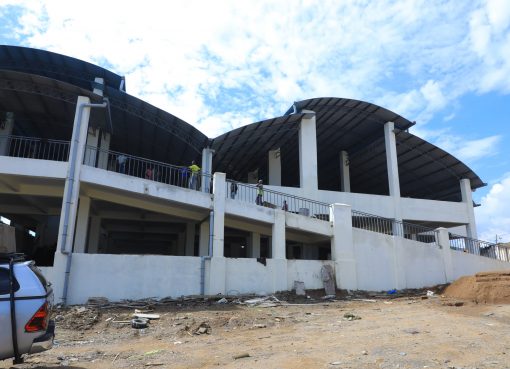Kisii University Vice Chancellor Professor John Akama has challenged Kenyan universities to seek more resources for research, innovation and publications as a core mandate of university education.
Speaking during the launch of his book ‘Undeterred: A Rural Boy’s Journey to the Pinnacle of Academia’ at Kisii University, Professor Akama said most individuals with doctorate degrees and professor titles have not done sufficient work in research and innovation or published their work.
“One of the guest professors from the University of Toronto told us that the lecturers there are researchers and innovators. As such, the university gets about 50 million dollars in grants for research purposes and through their research, they contribute almost 20 per cent to the Gross Domestic Product (GDP) of Canada with new products and scientific knowledge creation,” said Akama.

The Vice Chancellor noted that developed countries had made great strides in the fields of agriculture, industry and medicine due to the quality of university education they offer and urged policymakers to give more emphasis on university education.
“Even the Covid-19 vaccines that we have now have been developed by scientists who work in science labs in universities and therefore, if we undermine research, we cannot develop,” added Akama.
He asked the universities to push for more public-private partnerships from government and private institutions in order to secure more resources for their academic and innovation agenda.
Akama decried an increase in social media engagements as opposed to reading books and urged Kenyans, especially lecturers to interrogate academic work.
The book ‘Undeterred: A Rural Boy’s Journey to the Pinnacle of Academia’ narrates Professor Akama’s unique and personal story of overcoming many odds and succeeding in several fronts to get to the pinnacle of academia and university leadership.
Prof. Akama grew up in a simple rural African setting in Kenya’s hinterland, and was raised by a typical Kenyan peasant family with meagre resources and limited frills.
“He went through early childhood enculturation and basic education in rural Kenyan schools, characterized by limited educational resources, scant infrastructure and minimal facilities,” reads part of the synopsis.
By Mercy Osongo





